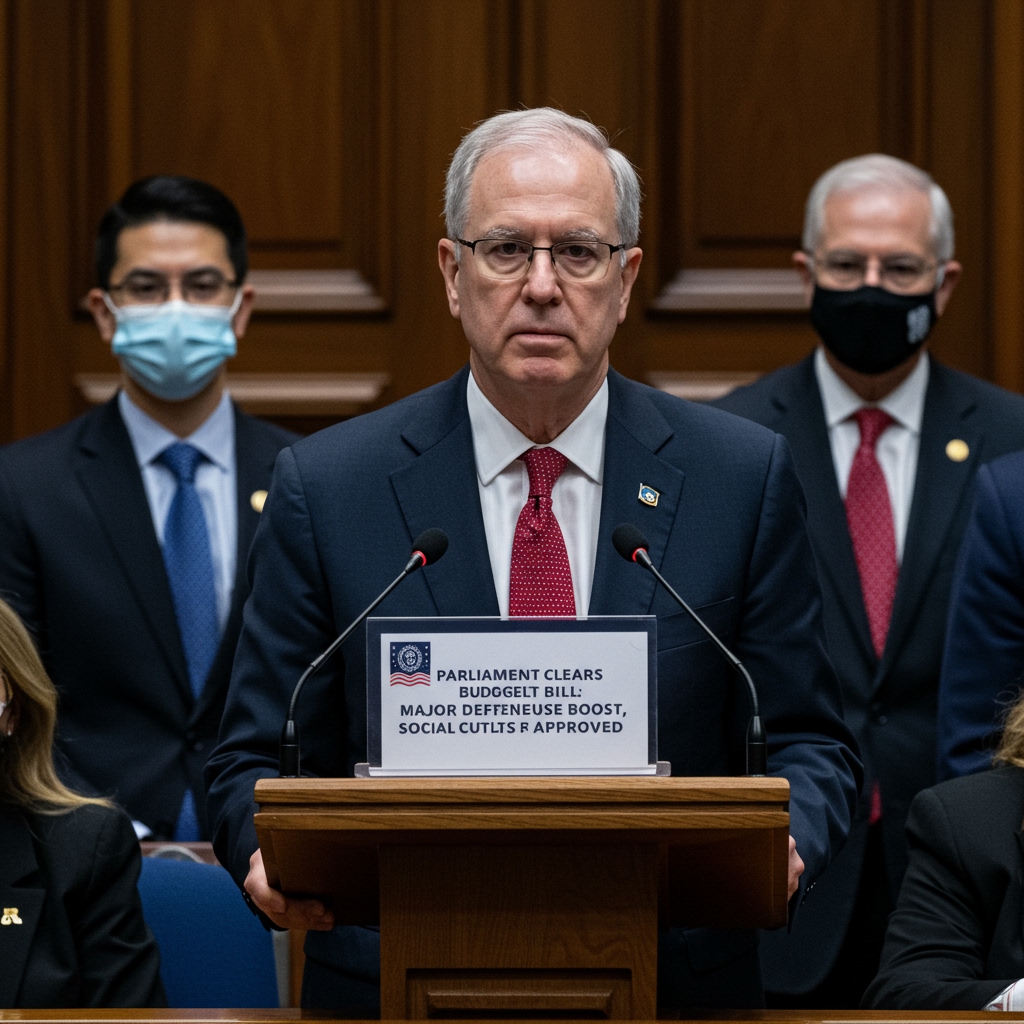Parliament Approves Contentious 2025 Fiscal Budget Bill
In a pivotal legislative session on Tuesday, the national parliament narrowly approved the highly contentious 2025 Fiscal Budget Bill. The vote, held after several days of intense and often acrimonious deliberation, concluded with a count of 305 in favor to 298 against, reflecting the deep divisions within the legislative body and the nation regarding the government’s proposed financial roadmap for the upcoming fiscal year.
The passage of the bill represents a significant legislative victory for the ruling government, securing the necessary funding and expenditure framework essential for its operations and policy implementation over the next year. However, the slim margin of approval underscores the significant opposition and public concern surrounding key aspects of the budget.
Key Provisions and Fiscal Shifts
The 2025 Fiscal Budget Bill introduces substantial changes to the nation’s spending priorities. A cornerstone of the approved budget is a notable 15% increase in defense spending. Proponents argue this increase is critical for bolstering national security, modernizing military capabilities, and responding to evolving geopolitical challenges.
Conversely, the bill mandates significant reductions across various social welfare programs. While specific program details were a major point of contention during debates, the aggregate effect of these cuts is expected to impact a wide range of public services and support systems designed to assist vulnerable populations. These reductions were justified by the government as necessary measures to control the national deficit and ensure long-term economic sustainability.
Intense Debate and Political Division
The multi-day legislative process leading to the vote was characterized by heated debate and impassioned speeches from both sides of the aisle. Sessions reportedly ran long into the night as parliamentarians dissected line items, challenged projections, and debated the philosophical underpinnings of the proposed expenditures and cuts.
Opposition parties vehemently criticized the bill, arguing that the substantial increase in defense spending came at the direct expense of essential social services. They highlighted the potential negative impacts on vulnerable populations, including low-income families, the elderly, and those reliant on public health services, suggesting the budget disproportionately burdens those least able to bear it.
Government spokespersons countered these arguments by emphasizing the necessity of the proposed budget. They maintained that the fiscal plan is crucial not only for national security in an unpredictable global climate but also for fostering economic stability by controlling debt and promoting responsible government spending in other areas. They presented the budget as a balanced approach, albeit one requiring difficult choices to ensure the nation’s long-term prosperity and safety.
Opposition’s Reaction and Legal Challenge
Following the vote, opposition leaders did not mince words in expressing their disappointment and condemnation of the bill’s passage. In post-session remarks, they sharply criticized the government’s priorities and the process by which the bill was advanced.
Significantly, opposition figures pledged to challenge aspects of the bill legally. While the specific grounds for such challenges were not immediately detailed, potential avenues could include claims related to procedural irregularities during the legislative process or constitutional arguments pertaining to the impact of the cuts on fundamental rights or equality. A legal battle could potentially delay or alter the implementation of certain budget provisions, adding another layer of uncertainty following the parliamentary approval.
Government’s Defense and Future Outlook
In contrast, government spokespersons lauded the parliament’s decision, portraying it as a responsible step forward. They reiterated their stance that the budget package is indispensable for navigating current economic challenges and safeguarding the nation’s interests. They emphasized that the defense increase is a direct response to legitimate security concerns, while the social program adjustments are part of a broader effort to modernize the welfare system and ensure its long-term viability.
The passage of the 2025 Fiscal Budget Bill marks a critical juncture for the government and the country. While securing the necessary financial framework, the narrow victory and the promise of legal challenges suggest that the debate over spending priorities is far from over. The implementation of the budget in the coming months will be closely watched, particularly regarding the tangible effects of both the increased defense spending and the reductions in social welfare programs on the lives of citizens and the nation’s overall trajectory.





